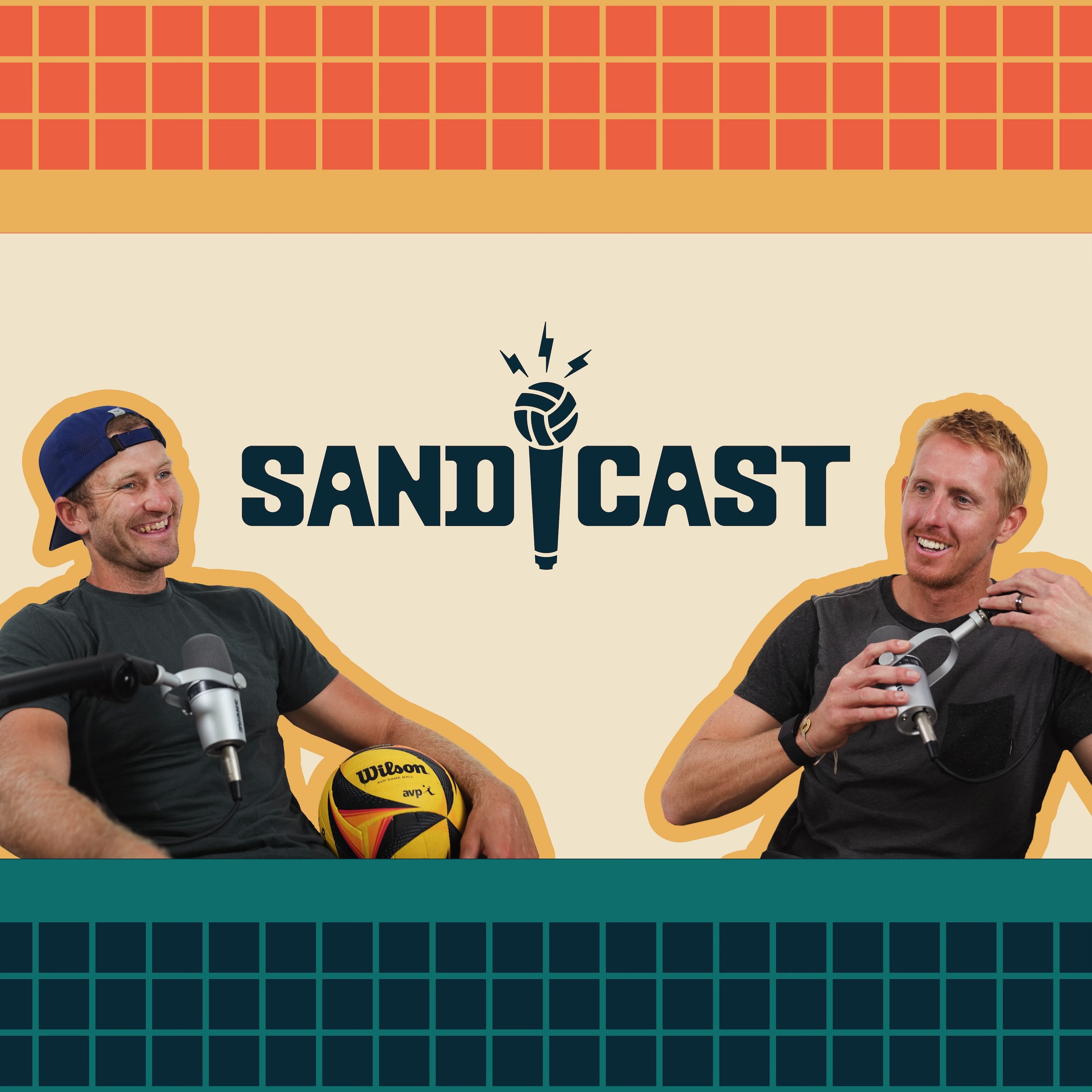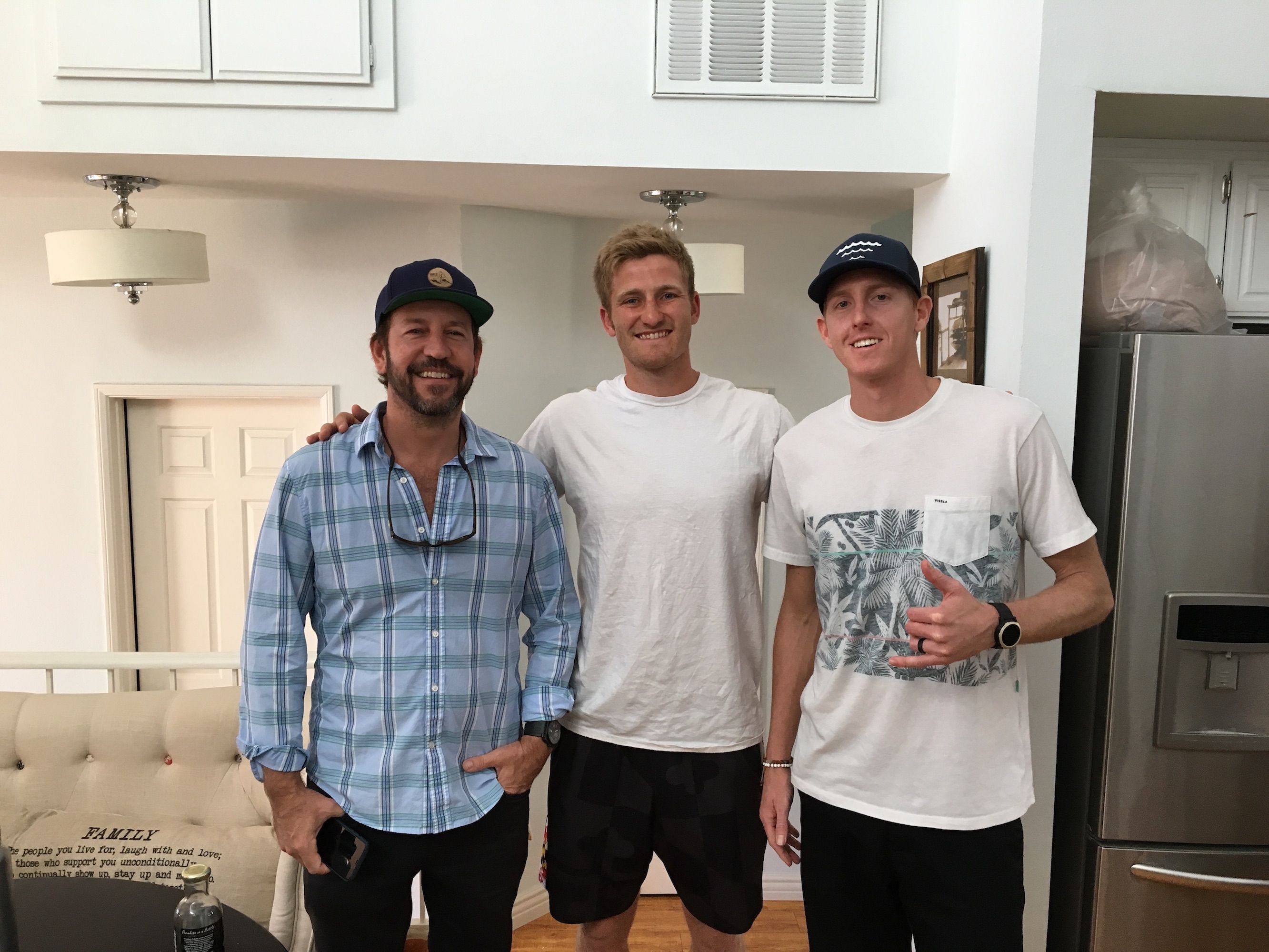

1.1M
Downloads
470
Episodes
SANDCAST is the first and leading beach volleyball podcast in the world. Hosts Tri Bourne and Travis Mewhirter take listeners into the world of the AVP, Volleyball World Beach Pro Tour and any other professional beach volleyball outlets, digging deep into the lives of the players both on and off the court as well as all of the top influencers in the game.
Episodes

Wednesday Feb 21, 2018
Can p1440 change the landscape of beach volleyball?
Wednesday Feb 21, 2018
Wednesday Feb 21, 2018
It’s not a tour.
That’s the first thing that Dave Mays, this week’s guest on SANDCAST: Beach Volleyball with Tri Bourne and Travis Mewhirter, wants you to know about p1440, of which he is a founding partner.
It is many different things with many different meanings. Take, for example, the name itself. The 1440 is assured: It represents the 1,440 minutes we all have per day. But the p? Platform seems to be the most popular word for it, though, as Mays says, it’s up to your own interpretation. It could be purpose. Or power. Or people. Or whatever word that starts with ‘p’ you’d like to use to represent how you’d like to use your 1,440 minutes in a day.
Would you like to use it to strengthen your relationship with people? People it is. Or strengthening your mind, body and soul? Power it is.
That sort of the point: p1440, and how you spend your minutes, is up to you.
To some, yes, that means it’s a beach volleyball tour or league, and currently, there are eight events on the schedule, which bridges 2018 and 2019. The first four are set – Chicago in September, with Huntington Beach, San Diego and San Jose to follow – while the next four, which will be held in early 2019, are in limbo, though the sites have been whittled down to a few catchy options. There’s Vegas – Vegas! – a major city in Texas (Dallas and Houston, namely), Miami, Hawaii.
An ambitious start. An exciting start. And that hardly scratches the surface, for each event is not just a beach volleyball tournament.
It is, as Kerri Walsh-Jennings, a co-founder along with her husband, Casey Jennings, and Mays, has taken to saying: “Part Wanderlust, part Coachella, part beach volleyball league.”
Each event, tantamount to the World Series of Beach Volleyball, will feature a tournament, but it will also serve as a music festival of sorts, replete with concerts and fanfare and everything you’d expect of the triumvirate Walsh-Jennings mentioned.
How, you may be wondering, can an upstart tour fund eight events while also doubling as a music festival? Beach volleyball has been a notoriously volatile space in the market, in spite of the sport itself growing every year, to the point that more girls play volleyball than soccer or track and field or basketball.
For females, it’s the most popular sport in the country. And yet nobody has been able to monetize the market in a sustainable enough fashion for it to work. The business model has remained the same since a company named Event Concepts began putting on professional events in 1976.
They’d find a sponsor – Schlitz Beer was the first – or many sponsors, to throw in money, and that money would then be translated into prize money, which would draw talent and a crowd to watch that talent. Sponsors would be happy because they got the eyeballs they wanted, players would be happy because they got the prize money they wanted.
And so it went.
Until, of course, the tabs being run up by the tour were too hefty for the sponsors to cover, and one gigantic failure led to the next. Event Concepts was booted in 1984, thanks to a player protest at the World Championships of Beach Volleyball, and in came the AVP, an organization led by the players and a young, savvy agent named Leonard Armato. The AVP changed hands in 1990, when Armato was replaced by Jeff Dankworth, who in 1994 was replaced by Jerry Solomon, whose gross mishandling of the finances led to a bankruptcy, only for the AVP to be revived by – who else? – Armato in 2001.
Nine years later it was bankrupt again, and in 2012, Donald Sun took over and put on a pair of events, and since then he has done a fine job of steadying the frighteningly tenuous heartbeat of beach volleyball, increasing prize money and events and introducing a “Gold Series” and putting the sport back on television.
And yet the business model remains relatively the same, though there are certainly various nuances, as 1976: sponsor-driven.
“If we were to start a new pro beach volleyball tour tomorrow, we would fail,” Mays says on SANDCAST. “So that’s why we’re not starting a pro beach volleyball tour. We’re taking the sport of volleyball and we’re celebrating it, what works and what doesn’t. We’re applying some principles of what have worked and what do work, to this.”
And here is where the differentiation between p1440 and the AVP Tour begins.
p1440 will charge a $40 gate fee, every tournament. The AVP allows its fans, which pack stadiums, for free, though there are paid box seats. But the entry gate will hardly be the chief source of revenue for p1440.
That’s where the “platform” comes in.
Above all else, above volleyball and music and entertainment, p1440 is built upon four pillars: competition, development, health and wellness, entertainment.
The platform, an online resource featuring myriad digital media, will host webinars, coaching, nutrition, live clinics – any type of wellness resource you might need, be it mental, spiritual or physical. It’s not live yet – it is scheduled to launch in July – and until 2021, it will not be monetized. The content will be entirely free, with the goal of reaching 4 million subscribers by 2021, by which point a subscription fee will be required. No numbers are for sure in terms of the subscription fee, but on SANDCAST, there was a $5 estimate. If p1440 hits its goal of 4 million subscribers at $5 a month, you can do the math – $20 million in revenue per month from the platform alone.
If successful – an admittedly large “if” in this sport – the subscription model answers, in part, where the prize money and funding for the tour will stem from. Which leads to the next inevitable question: Who will be receiving those paychecks?
Mays, who built and sold a shipping business for a not-so-small fortune and was looking for a new project to work on, thinks it’s no question at all: p1440 will feature the finest talent in beach volleyball, and not only because there will be more prize money – he gave no definitive figure on what the breakdown will be, only that it will be more – but there will be more talent.
The failure to retain the game’s highest talent led to the breakdown of the NVL. Players want to play against the best, which was why, when Sun revived the AVP in 2012, and the top players returned, the NVL lost momentum and, eventually, financial backing. The best currently play on the AVP and FIVB tours.
There will be a battle over loyalty, the AVP’s non-compete (p1440 has no exclusivity clause in its contract), and, when it comes down to it, prize money and sponsors.
Mays intends on bringing in the best, not only in this country, but overseas.
Each tournament will feature a 24-team main draw. Sixteen of those teams will be Americans automatically seeded in. Four will come out of the qualifier. And four will be international wild cards.
Want to play against the best? p1440 could have Alison and Bruno, or Evandro and Andre, or Nicolai and Lupo. For the women, it could be Ludwig and Walkenhorst, Agatha and Duda, Talita and Larissa.
Walsh’s reach, even if she has been on the peripherals of the game as a player lately, is still extensive. You don’t win three gold medals and suddenly lose all of your contacts.
Those players mentioned will be available, too, for Mays and Walsh-Jennings and Casey Jennings have made it a point to schedule around the AVP as well as four- and five-star FIVBS.
The plan is to have the best in the world, playing for the best prize money in the game, with some music and entertainment to cap the night.
It’s a lot. It’s big. It’s potentially transformative. It might work, it might not. That’s part of the excitement around this movement. And maybe that all sounds a bit crazy, though it is worth reminding that the most successful ideas and businesses were, at one point or other, invariably labeled “crazy.”
As Walsh-Jennings wrote on Instagram: “It’s go time.”
No comments yet. Be the first to say something!